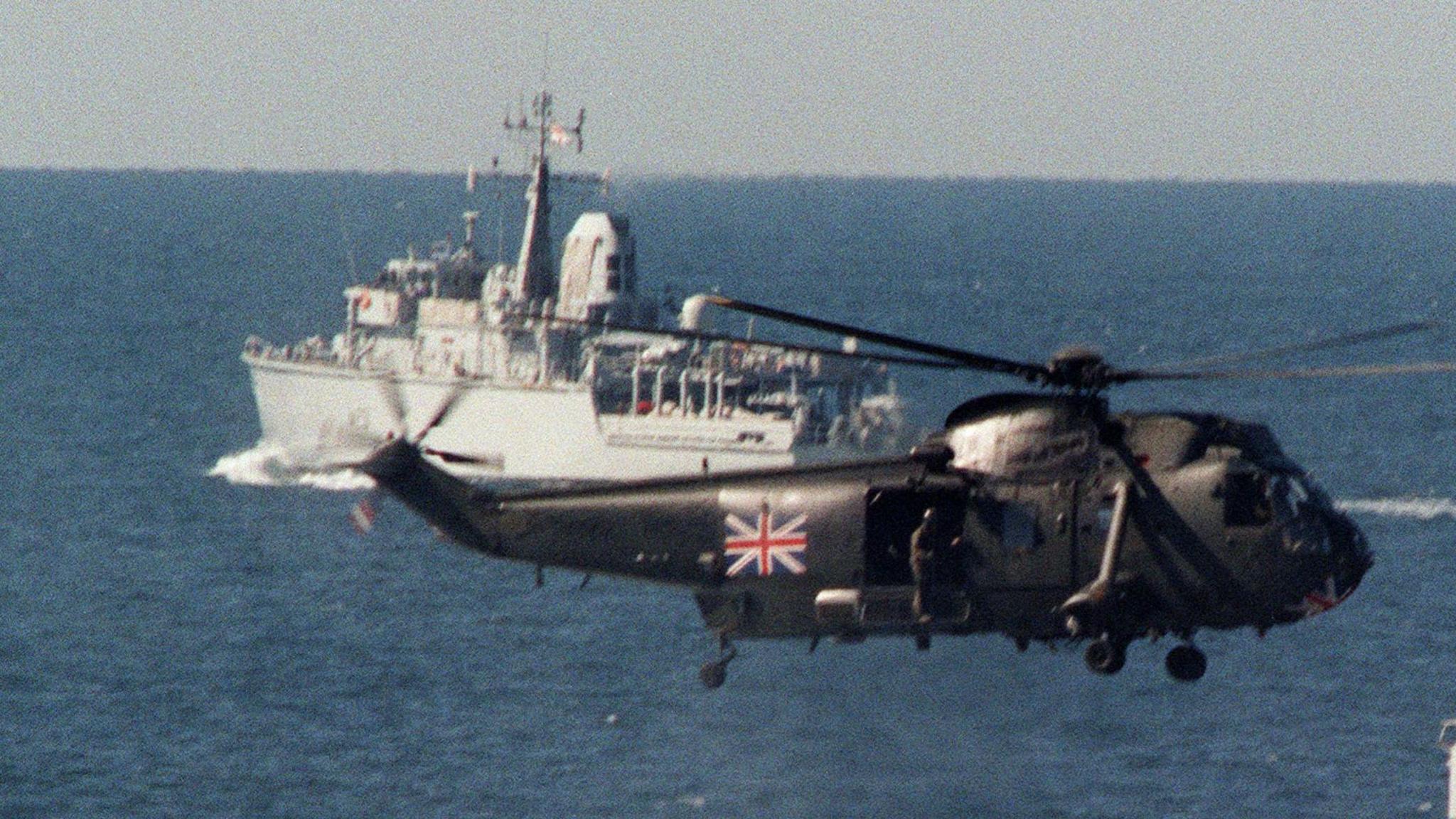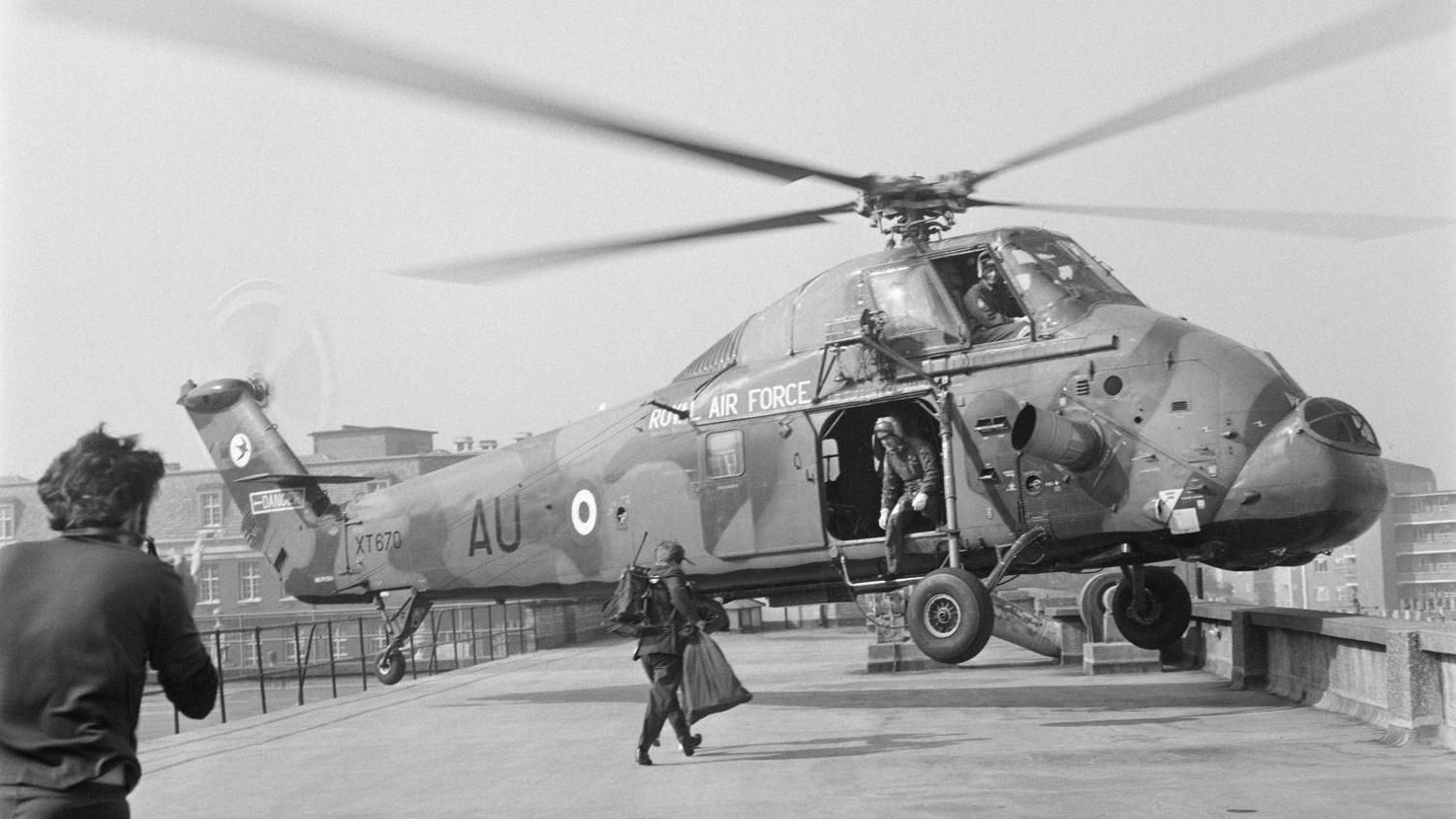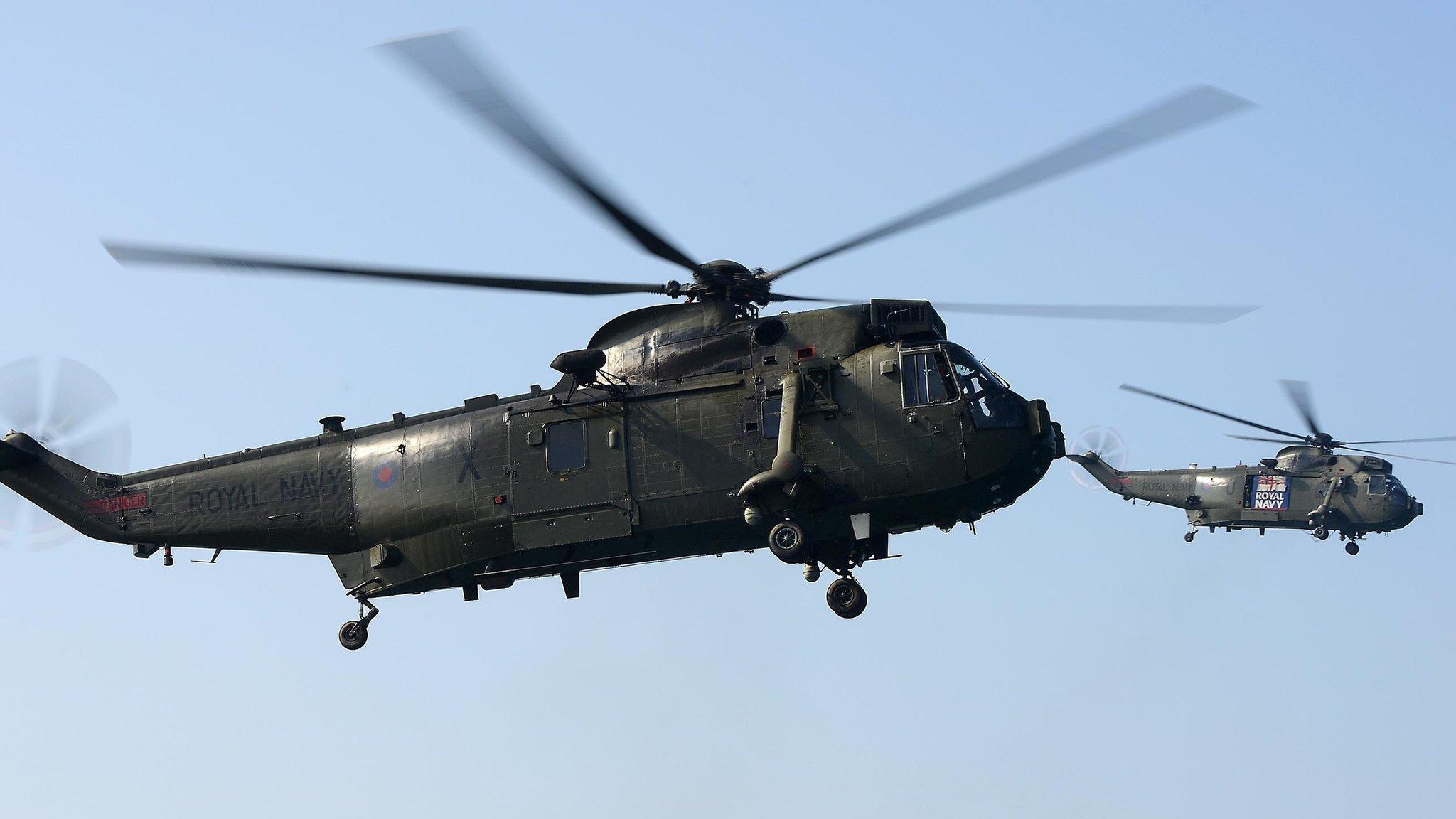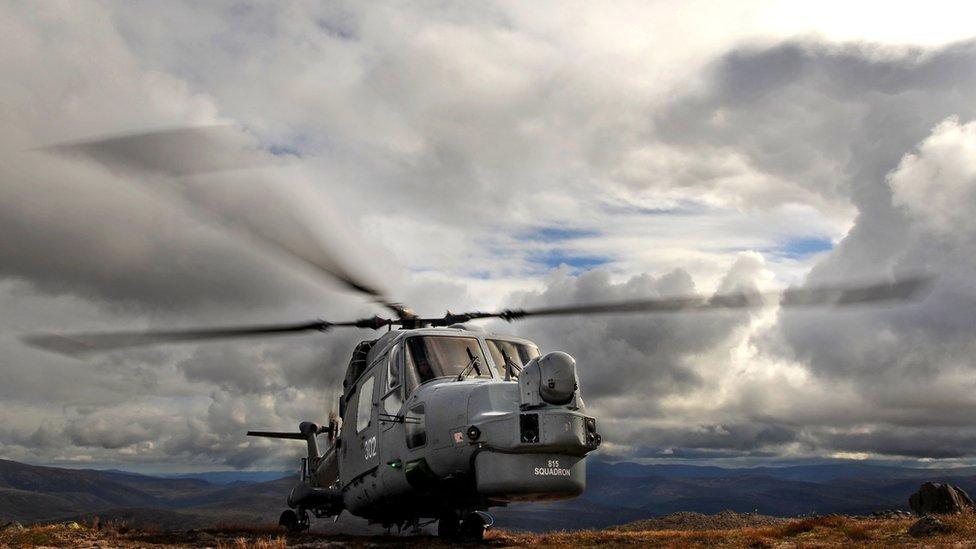Ex-military air crews sue government over fumes

Personnel who flew in helicopters such as the Sea King are taking legal action
- Published
Former servicemen from Somerset and Wiltshire are among those suing the government over claims they developed cancer as a result of toxic fumes breathed in while they were working.
Lawyers acting for the personnel claim the fumes from helicopters were circulated in the cabins of the helicopters themselves and ingested by their crews.
It is believed more than 40 people are taking legal action, according to The Times newspaper, external, but one of the lawyers involved said the number affected could be much higher.
The Ministry of Defence said former personnel can apply for compensation if they believe their ill health is a result of their time in the military.
Speaking to BBC Radio Somerset, Jonathan Dingle from law firm Normanton Chambers in Taunton - which is representing some of those claimants - said: "For many years, the fumes coming out of the gnome engines which sit on top of the Sea King helicopter or on the front of the Wessex helicopter, pumped out benzine carcinogens - things that cause cancer.
"These recirculated through the body of the helicopters causing - we believe - cancers to grow in all sorts of parts of the body of these aircrew that wouldn't be there at the age you'd expect.
"People in their late 30s or early 40s were coming forward with all sorts of devastating cancers - some lost their lives."
Mr Dingle added that he believes the issue does not just affect personnel once based at the Royal Navy base in Yeovilton in Somerset, but also people at Newquay and Helston in Cornwall, and others in the RAF.
He said the Wessex helicopter was designed and launched in 1958 and the Sea King in 1968, both with exhausts that pumped out fumes into the area just below their rotor blades.
"Those forced the gases down and circulated through... they [the crews] were breathing in these exhaust gases."

The Wessex helicopter was first used in the 1950s
Mr Dingle said since the story of this legal action was broken by the The Times, "another dozen or so people" have come forward.
"These are people who are dying, unnecessarily... people who have given their lives to the service of this nation," he added.
A Ministry of Defence spokesperson said: "We hugely value our service personnel and veterans and owe a debt of gratitude to all those who serve, often with great personal sacrifice.
"We continually review our policies to ensure they are aligned with good practice and protect our people from harm.
"Service personnel and veterans who believe they have suffered ill health due to service, from 6 April 2005, have the existing and long-standing right to apply for no-fault compensation under the Armed Forces Compensation Scheme."
Follow BBC Somerset on Facebook, external and X, external. Send your story ideas to us on email or via WhatsApp on 0800 313 4630.
- Published21 March 2016

- Published17 March 2017
